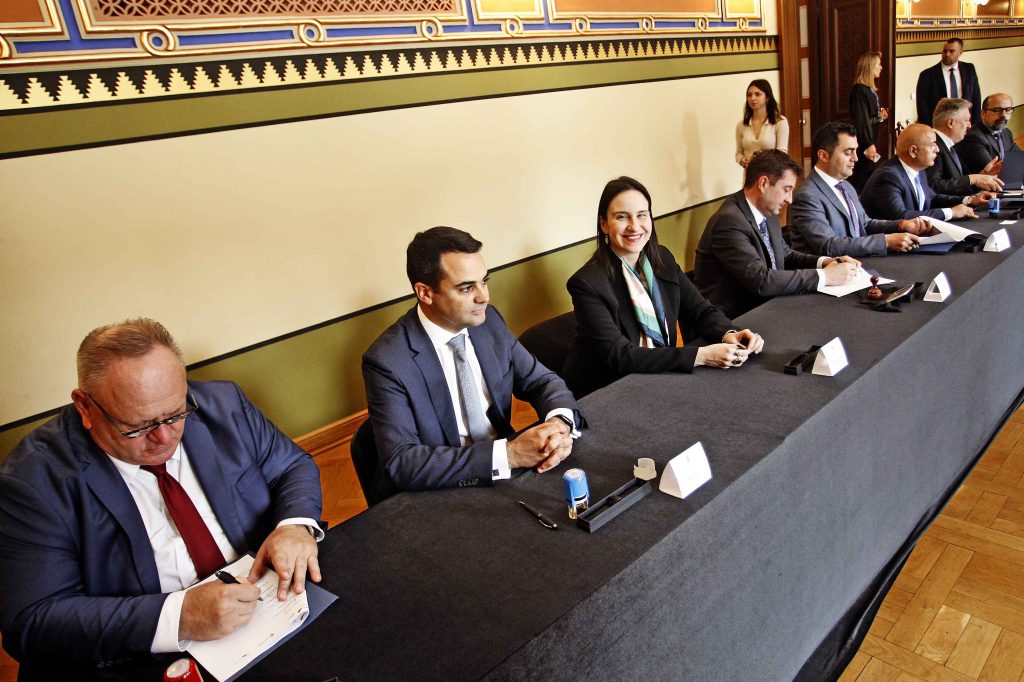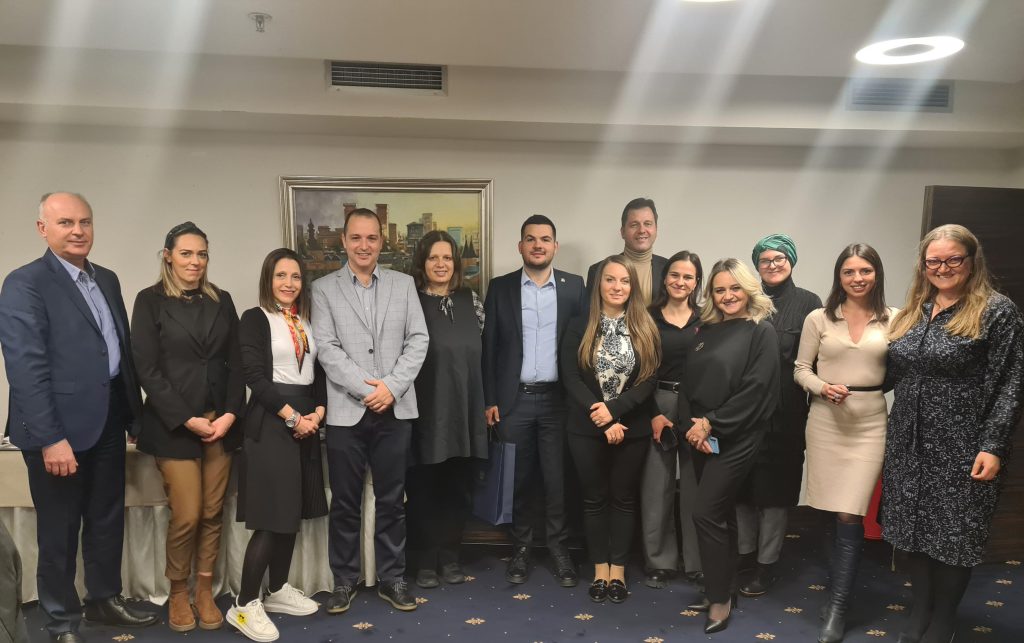
On the initiative of the City and Sarajevo and supported by GIZ and NALAS, nine cities established the EU projects City Network for the Western Balkans. On 7 March 2023, Mayors of Bar, Leskovac, Sveti Nikole, Elbasan, Mostar and Sarajevo, and the legal representatives of Podgorica, Prishtina and Novi Pazar gathered in Sarajevo and by signing a Memorandum of Understanding set the basis of the City Network.
All Mayors and cities’ representatives agreed that this Network has great potential to contribute to the development of the Western Balkans Region.
‘’We all face similar challenges and similar problems in our cities. Our symbolic City Budgets cannot meet the needs of our citizens. Therefore, we must reach out to available international funds in order to improve the quality of life in our communities. When we join forces, these effects will be even greater, and together we can achieve even bigger results in the Region’’, emphasised Ms. Benjamina Karic, Mayor of the City of Sarajevo.
“Partnerships between the countries of the Western Balkans at the city and local levels will have tangible effects for the benefit of the citizens. Concrete measures are intended to strengthen transparency, the rule of law, and quality in public administration in various areas. We seek to develop and sustainably anchor partnership models between twin cities. The German Government, but also important other donors, are particularly supportive of this concern”, said Dr.Daniel Stinsky, Head of Economics and Development, Embassy of the Federal Republic of Germany.
“Open Regional Fund – Modernisation of Municipal Services aims to improve the cross-country cooperation of towns from WB6 and its contribution to economic, administrative, and cultural development in South-Eastern Europe. By creating the network of the cities, this initiative brings together joint project teams and political decision-makers within the framework of peer learning, develop and implement joint project proposals, as well as to intensify partnerships and exchange with other twin cities in Central and Western Europe”, said Mr. Peter Wolf, Fund Manager.
“Local governments’ absorption capacities remain one of the relevant issues in the EU accession process, as a potential for improvement of local public services. We believe that by learning and working together, cities can empower their teams and utilise the available resources for the benefit of their citizens”, concluded Mr. Kelmend Zajazi, NALAS Executive Director.

On 7-8 April, in parallel with their leaders, the EU officers of the nine cities took part in their first Networking Meeting, presenting and discussing cities’ strategies, project portfolios and teams, as well as and exploring future cooperation.

The activities of the City Network in the first year will include series of online exchanges, EU project development course, study visit, as well as mentoring for finalisation and submission of joint project proposals.
This initiative is financed by the Federal Ministry of Economic Cooperation and Development (BMZ) and implemented by the German Cooperation (GIZ), with the technical assistance of the Network of Local Authorities of South-East Europe (NALAS).